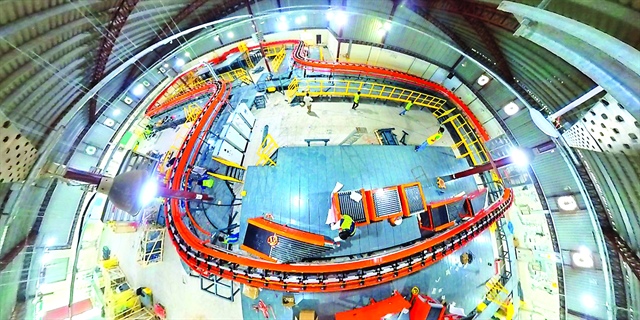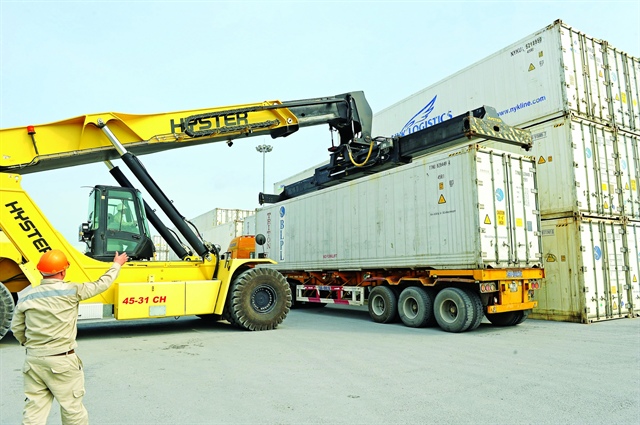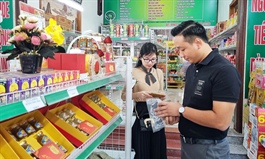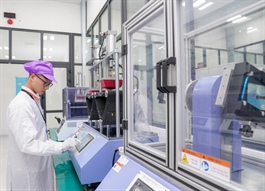EU trade deal boosts logistics industry
EU trade deal boosts logistics industry
The EU-Vietnam Free Trade Agreement (EVFTA) not only promotes Vietnam's exports to European member countries but also helps increase the demand for logistics services.
Foreign partners
Tran Thanh Hai, Deputy Director of the Ministry of Industry and Trade’s Agency of Foreign Trade said bilateral trade has increased significantly since the EVFTA took effect on August 1, 2020, offering great opportunities for logistics enterprises, especially those engaged in the transportation of such major exports as textiles and garment, leather and footwear, and seafood.
EU logistics enterprises are large-scaled and experienced. Many EU logistics enterprises have operations in Vietnam, including DHL Group, Kuehne+Nagel, DB Schenker of Germany, and Maersk group of Denmark. Vietnamese logistics companies, which largely deal with forwarding and handling export procedures, now have an opportunity to cooperate with their European multinational counterparts and large modern fleets, learn from their experience and attract capital, Hai said.

The EVFTA offers numerous opportunities for logistics businesses in Vietnam |
Mai Tran Thuat, Director of Supply Chain Solutions at the Bee Logistics Group, said the EVFTA has offered numerous opportunities for logistics businesses in Vietnam. Some foreign companies that have moved their supply chains out of China recently have invested in Vietnam. Enterprises like Bee Logistics are cooperating with big firms to act as subcontractors in order to increase the presence of Vietnamese logistics enterprises.
Solutions needed
As well as opportunities and potential, Vietnamese logistics enterprises face many new challenges under EVFTA. Tran Thanh Hai, Deputy Director of the Agency of Foreign Trade said most domestic enterprises are small- and medium-sized with limited professional experience and insufficient facilities, resulting in higher logistics costs.

As well as opportunities and potential, Vietnamese logistics enterprises face many new challenges under EVFTA |
In addition, the logistics and transportation system must meet the strict requirements of EU standards and control. Exports from Vietnam also require better assurance of the quality of preservation and transportation, especially of agricultural products, bamboo and rattan products, and wooden furniture, which are susceptible to temperature changes and environmental conditions.
According to Le Hoang Khanh Nhut, General Director of the Da Nang Rubber Joint Stock Company, logistics makes up a large proportion in firms' product costs. Even in difficult periods, like 2021, logistics costs increased dozens of times. “We do not have a shipping company, so we are dominated by many foreign shipping lines. Therefore, Vietnam must develop logistics centers at major ports to ensure the appropriate number of ships in and out and to master this game. If we don't keep up, we will face great competition,” he said.
According to Ngo Chung Khanh, Deputy Director of the Ministry of Industry and Trade’s Multilateral Trade Policy Department, Vietnam's logistics industry needs consistent solutions on the part of business and the state, to overcome challenges and take advantage of EVFTA opportunities. Businesses need to better understand logistics market opening commitments, identify new competition threats, adjust their thinking about the logistics industry and optimize their operations.






















